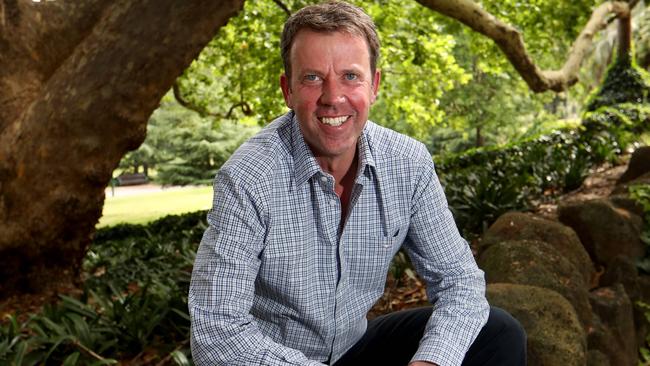Bullying of teachers out of control
Teachers must be given better training to manage classroom discipline, Education Minister Dan Tehan has said.

Teachers must be given better training to manage classroom discipline, Education Minister Dan Tehan has said, amid concerns graduates are increasingly unable to control disruptive and abusive students.
Mr Tehan said he had been shocked by the level of abuse experienced by teaching professionals since he took over as minister and called for a sharper focus on making teachers “classroom-ready” by the end of their university degrees.
In an interview with The Australian, Mr Tehan said he had spoken extensively to teachers and there was a strong desire to see respect restored to classrooms and broader school environments.
He said he was left “staggered” after a recent meeting with principals: “When I asked them … if they have ever been verbally or physically abused (doing their job), nearly every single one … put their hand up.”
Research from the OECD’s Program for International Student Assessment has revealed that Australian classrooms are among the most disruptive in the world, ranking 63rd out of 68 countries. The report, which analysed what went on in science classrooms and used data from a survey of more than 14,000 students from 760 schools, revealed 40 per cent said there was high levels of noise and disorder in class, that students didn’t listen to the teacher, and “they found it difficult to learn”.
Other reports suggest that when handled effectively, behaviour management programs can boost academic progress by at least three months.
Mr Tehan said teacher training for graduates in the area of classroom management and more broadly remained an issue where work needed to be done.
“The key thing is when you finish your teaching degree that you have the qualities and capabilities to be able to teach,” Mr Tehan said. “What we’re not seeing is (graduates) with enough practical experience and knowledge of how they should operate in the classroom. It’s about making sure that teachers understand the importance of having a clear objective for their lesson, making sure they have got the appropriate classroom management skills and are able to get the required classroom discipline so all students can learn.”
Reform of the initial teacher education (ITE) sector has been under way for several years. It was sparked by the 2014 report of the Teacher Education Ministerial Advisory Group (TEMAG), which revealed a high degree of variability in the quality of courses on offer, including “significant pockets of objectively poor practice”.
New standards for the accreditation of ITE courses were rolled out in 2015 to align course content with the professional standards for good teaching practice. The Education Council agreed in September to more reforms to ensure all courses met the standards, regardless of their jurisdiction, including the rollout of teaching performance assessments (TPAs) for graduates.
The tests have been met with some push-back from parts of the sector. A recent TEMAG forum heard that there was a lack of agreement from the universities as to the value of TPAs.
While Mr Tehan acknowledged there had been some resistance, he said he had confidence in the reform process.
But critics have claimed the ITE course standards are too vague and that the process of accreditation lacks rigour. La Trobe University’s Pamela Snow said: “They are not at all specific and it’s very easy for a program to look like they are meeting the accreditation requirements. It shouldn’t be open to individual universities being free to interpret the standards as they see fit.”
Education policy expert Stephen Dinham, of the Melbourne Graduate School of Education, agreed more work was needed to strengthen ITE courses.
“The key thing is having a proper process of accreditation because at the moment it’s very low-level, it’s paper-based, its what the university says,” Professor Dinham said.
“I don’t think any course has been knocked back (for accreditation). Some might have taken a little while but they all get there.”
The federal Education Department confirmed that as of October, all ITE programs met the strengthened accreditation standards. There are 48 initial teacher education providers offering 349 programs and graduating about 18,000 potential teachers every year.
Australian Council of Deans of Education president Tania Aspland said professional experience for teaching students and teachers was the “unfinished business” of the TEMAG reforms. She cautioned against any bid for a “magic solution” to the issue of classroom management. “The focus should be more on learning than discipline — you can’t separate the two,” Professor Aspland said.
“If you can get students engaged in learning and they love learning, then discipline problems tend to be minimised.”
Teacher and author Greg Ashman welcomed Mr Tehan’s comments, given that classroom management was an issue that left many teachers worried.
While the course standards require graduate teachers to be able to identify ways to boost student engagement as well as manage challenging behaviour, Mr Ashman said much of what was taught was not useful, leaving many teachers struggling. “This idea that if you provide an engaging lesson that kids will be engaged and behave, it’s complete nonsense,” he said.
Mr Tehan said teachers also wanted the curriculum decluttered so they could concentrate on teaching the basics well.


